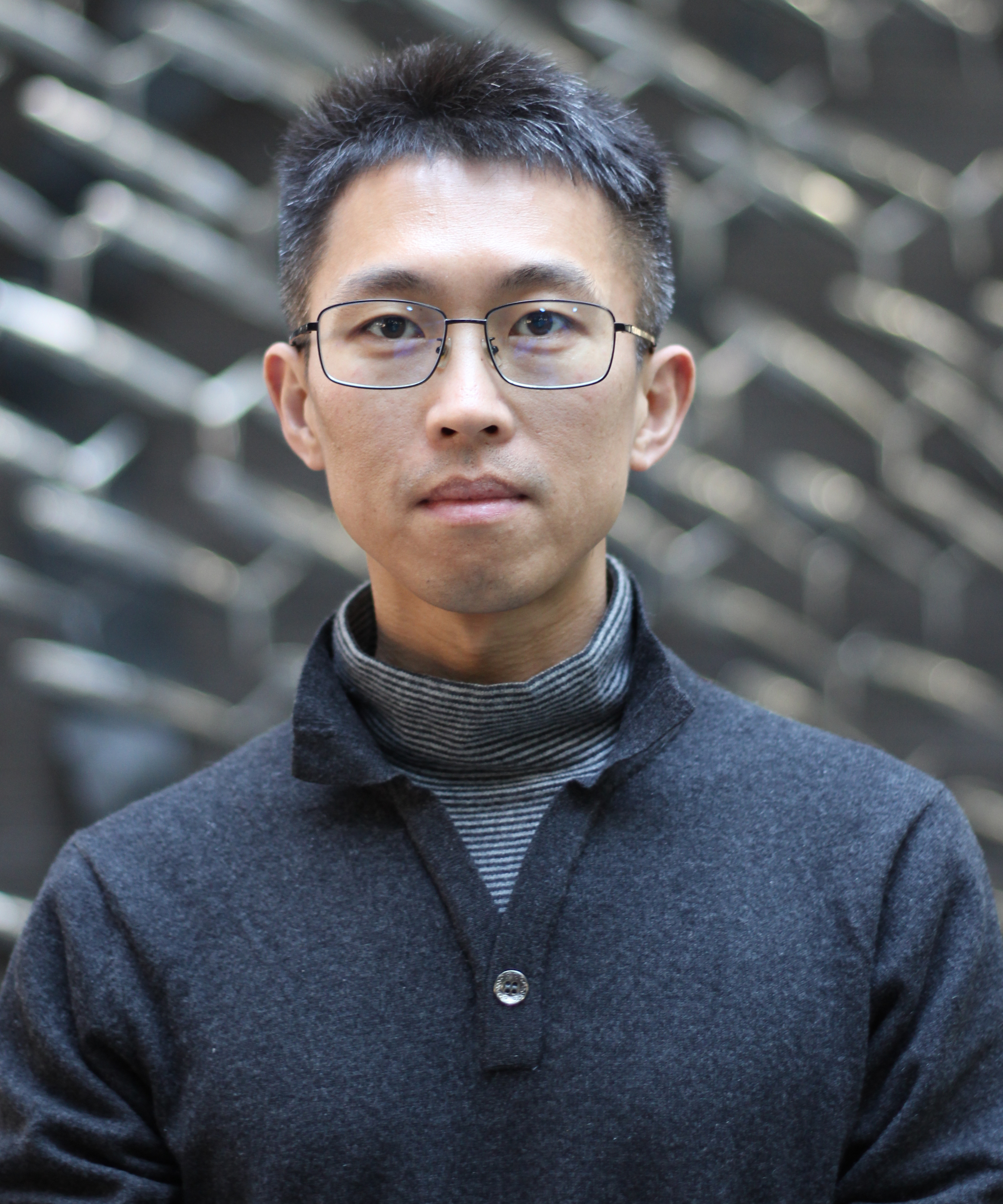个人介绍:
2008年6月毕业于山东大学金沙集团wwW3354CC生物技术(生命科学基地)专业。2008年9月至2015年1月在中国科学院上海生命科学研究院生物化学与细胞生物学研究所攻读博士学位,师从丁建平教授,主要利用X-射线晶体学研究与内吞过程相关的小G蛋白Rab GTPases在膜泡运输过程中发挥功能的分子机制。2015年2月至2019年6月前往美国洛克菲勒大学陈珏(Jue Chen)教授课题组从事博士后研究,利用单颗粒冷冻电镜(single-particle Cryo-EM)技术对CFTR(Cystic Fibrosis Transmembrane conductance Regulator)蛋白发挥阴离子通道(anion channel)功能的分子机制进行了系统的阐释;并首次揭示了两种治疗囊性纤维化疾病(Cystic Fibrosis)的药物在该蛋白上的结合位点。2019年7月正式加入金沙集团wwW3354CC和北大-清华生命科学联合中心,担任研究员,开始组建膜生物学与生物物理学实验室。
教育经历:
2008年9月-2015年1月,博士,中国科学院上海生命科学研究院生物化学与细胞生物学研究所
2004年9月-2008年6月,本科,山东大学金沙集团wwW3354CC
工作经历:
2019年7月-至今,研究员,北大-清华生命科学联合中心
2019年7月-至今,研究员,金沙集团wwW3354CC
2015年2月-2019年6月,博士后,美国洛克菲勒大学荣誉奖励:
兴证全球基金奖教金杰出青年学者奖,2024
北京大学教学优秀奖,2023
勃林格殷格翰青年研究员奖, 2022
最受欢迎教师,2021
学而思博雅青年学者,2021
拜耳学者,2020
亿方学者,2019
Blavatnik区域性杰出青年科学家最终提名奖,2018
Tri-Institutional青年科学家突破奖,2018
Charles H. Revson Fellowship,2017-2019
执教课程:
生物化学 膜蛋白在生物体中大约占总蛋白数量的1/3,它们在细胞内外以及不同细胞器之间的信号转导和物质运输等过程中发挥了重要的功能。现在市场上进行研发的药物靶点60%左右为膜蛋白,因此,对膜蛋白功能机制及其与相应药物结合的分子机制的研究,既有重大的生物学意义,也有潜在的药物研发价值。
本课题组以结构生物学为主要手段,结合生物化学、细胞生物学以及电生理学等多种手段,研究生命过程中重要的膜蛋白—尤其是与重大疾病相关的膜蛋白—发挥功能的分子机制。根据功能的不同,膜蛋白可以被大致分为四类:离子通道、转运蛋白、受体蛋白和酶类。本课题组的研究将首先围绕转运蛋白和受体蛋白两大类膜蛋白展开。在转运蛋白这一类别中,我们着重于研究一类重要的次级转运蛋白—溶质转运蛋白(solute carrier, SLC)家族。该家族成员对底物进行顺浓度梯度的被动跨膜运输或者利用一种底物顺浓度梯度转移所提供的能量逆浓度梯度地转运另外一种底物。人类有400多个SLC蛋白,被分为50多个亚家族,是除了G蛋白偶联受体(G-protein Coupled Receptor, GPCR)家族外,人类基因组中第二大类的膜蛋白家族。该家族不同的成员间存在很大的功能和结构的异质性,它们参与了生命过程中许多重要小分子物质的跨膜运输,包括无机离子、神经递质、营养物质以及药物等。而在受体蛋白类别中,我们主要研究受体酪氨酸激酶(Receptor Tyrosine Kinase, RTK)家族(包括各种生长因子受体和胰岛素受体等)和Notch受体家族。这些蛋白家族均在细胞的生长、发育和代谢过程中发挥了最为基本的作用,它们的功能失调与多种癌症、神经退行性疾病和各类代谢性疾病有着紧密的联系。
At PKU:
-Representative papers
(#Co-first author, *Corresponding author)
(1) Balázs Tóth#, Yuefeng Jiang#, Andras Szollosi, Zhe Zhang, and László Csanády*; A conserved mechanism couples cytosolic domain movements to pore gating in the TRPM2 channel (2024); Proc. Natl. Acad. Sci. USA 121(46): e2415548121. (doi: 10.1073/pnas.2415548121)
(2) Yang Zhang#, Fei Dai#, Nanhao Chen#, Dong Zhou, Chia-Hsueh Lee*, Chen Song*, Yixiao Zhang*, and Zhe Zhang*; Structural insights into VAChT neurotransmitter recognition and inhibition (2024); Cell Res. 34: 665-668. (doi: 10.1038/s41422-024-00986-5)
(3) Yu Dang#, Tianyi Zhang#, Shabareesh Pidathala#, Guopeng Wang#, Yijie Wang#, Nanhao Chen#, Chen Song, Chia-Hsueh Lee*, and Zhe Zhang*; Substrates and drug recognition mechanisms of SLC19A3 (2024); Cell Res. 34: 458–461. (doi: 10.1038/s41422-024-00951-2)
(4) Shabareesh Pidathala#, Shuyun Liao#, Yaxin Dai#, Xiao Li, Changkun Long, Chi-Lun Chang, Zhe Zhang*, and Chia-Hsueh Lee*; Mechanisms of neurotransmitter transport and drug inhibition in human VMAT2 (2023); Nature 623 (7989): 1086–1092. (doi: 10.1038/s41586-023-06727-9)
(5) Fenglian Liu#, Yu Dang#, Lu Li#, Hao Feng#, Jianlin Li, Haowei Wang, Xu Zhang, Zhe Zhang*, Sheng Ye*, Yutao Tian*, and Qingfeng Chen*; Structure and mechanism of a neuropeptide-activated channel in the ENaC/DEG superfamily (2023); Nat. Chem. Biol. 19(10): 1276-1285. (doi: 10.1038/s41589-023-01401-7)
(6) Xue Bai#, Pengyu Sun#, Xinghao Wang#, Changkun Long#, Shuyun Liao#, Song Dang, Shangshang Zhuang, Yongtao Du, Xinyi Zhang, Nan Li, Kangmin He*, and Zhe Zhang*; Structure and dynamics of the EGFR/HER2 heterodimer (2023); Cell Discov. 9(1): 18. (doi: 10.1038/s41421-023-00523-5)
(7) Yu Dang, Dong Zhou, Xiaojuan Du, Hongtu Zhao, Chia-Hsueh Lee, Jing Yang, Yijie Wang, Changdong Qin, Zhenxi Guo, and Zhe Zhang*; Molecular mechanism of substrate recognition by folate transporter SLC19A1 (2022); Cell Discov. 8(1): 141. (doi: 10.1038/s41421-022-00508-w)
(8) Zelin Duan#, Xuezhen Lin#, Lixia Wang#, Qiuxin Zhen, Yuefeng Jiang, Chuxin Chen, Jing Yang, Chia-Hsueh Lee, Yan Qin, Ying Li, Bo Zhao*, Jianchuan Wang*, and Zhe Zhang*; Specificity of TGF-β1 signal designated by LRRC33 and integrin αVβ8 (2022); Nat. Commun. 13(1): 4988. (doi: 10.1038/s41467-022-32655-9)
(9) Zhaohan Lin#, Yinglin Li#, Yuqi Hang#, Changhe Wang, Bing Liu, Jie Li, Lili Yin, Xiaohan Jiang, Xingyu Du, Zhongjun Qiao, Feipeng Zhu, Zhe Zhang*, Quanfeng Zhang*, and Zhuan Zhou*; Tuning the size of large dense-core vesicles and quantal neurotransmitter release via secretogranin II liquid-liquid phase separation (2022); Adv. Sci. e2202263. (doi: 10.1002/advs.202202263)
(10) Yuefeng Jiang, Tingting Liu, Chia-Hsueh Lee, Qing Chang, Jing Yang*, and Zhe Zhang*; The NAD+-mediated self-inhibition mechanism of pro-neurodegenerative SARM1 (2020); Nature 588(7839): 658-663. (doi: 10.1038/s41586-020-2862-z)
-Others
(1) Jing Wang#, Zhengyang An#, Zhongsheng Wu#, Wei Zhou#, Pengyu Sun, Piyu Wu, Song Dang, Rui Xue, Xue Bai, Yongtao Du, Rongmei Chen, Wenxu Wang, Pei Huang, Sin Man Lam, Youwei Ai, Suling Liu, Guanghou Shui, Zhe Zhang, Zheng Liu, Jianyong Huang, Xiaohong Fang*, and Kangmin He*; Spatial organization of PI3K-PI(3,4,5)P3-AKT signaling by focal adhesions (2024); Mol. Cell 84(22): 4401-4418. (doi.org/10.1016/j.molcel.2024.10.010)
(2) Xuehui Lyu#, Yingzi Cui#, Yinfei Kong#, Min Yang, Hui Shen, Shuyun Liao, Shiyu Li, Chenrui An, Haoyi Wang, Zhe Zhang, Jennie Ong, Yan Li, and Peng Du*; A transient transcriptional activation governs unpolarized-to-polarized morphogenesis during embryo implantation (2024); Mol. Cell 84(14): 2665-2681. (doi: 10.1016/j.molcel.2024.06.005)
(3) Yansong Zhang#, Siyuan Lin#, Jingyu Peng#, Xiaojuan Liang, Qi Yang, Xue Bai, Yajuan Li, Jinhua Li, Wei Dong, Yue Wang, Ying Huang, Yumeng Pei, Jiabao Guo, Wanni Zhao, Zhe Zhang, Min Liu*, and Alan Jian Zhu*; Amelioration of hepatic steatosis by dietary essential amino acid-induced ubiquitination (2022); Mol. Cell 82(8): 1528-1542. (doi: 10.1016/j.molcel.2022.01.021)
(4) Yingdi Wang, Yiming Niu, Zhe Zhang, Kenneth Gable, Sita D Gupta, Niranjanakumari Somashekarappa, Gongshe Han, Hongtu Zhao, Alexander G Myasnikov, Ravi C Kalathur, Teresa M Dunn, and Chia-Hsueh Lee*; Structural insights into the regulation of human serine palmitoyltransferase complexes (2021); Nat. Struct. Mol. Biol. 28(3): 240-248. (doi: 10.1038/s41594-020-00551-9)
Before PKU:
(1) Fangyu Liu#, Zhe Zhang#, Anat Levit, Jesper Levring, Kouki K. Touhara, Brian K. Shoichet, and Jue Chen*; Structural identification of a hotspot on CFTR for potentiation (2019); Science 364(6446): 1184-1188. (doi: 10.1126/science.aaw7611)
(2) Zhe Zhang#, Fangyu Liu#, and Jue Chen*; Molecular structure of the ATP-bound, phosphorylated human CFTR (2018); Proc. Natl. Acad. Sci. USA 115(50): 12757-12762. (doi: 10.1073/pnas.1815287115)
(3) Zhe Zhang#*, Balazs Tóth#, Andras Szollosi, Jue Chen, and Laszló Csanady*; Structure of a TRPM2 channel in complex with Ca2+ explains unique gating regulation (2018); eLife 7: e36409. (doi: 10.7554/eLife.36409)
(4) Zhe Zhang, Fangyu Liu, and Jue Chen*; Conformational changes of CFTR upon phosphorylation and ATP binding (2017); Cell 170(3): 483-491.e8. (doi: 10.1016/j.cell.2017.06.041)
(5) Fangyu Liu#, Zhe Zhang#, Laszló Csanady, David C Gadsby, and Jue Chen*; Molecular structure of the human CFTR ion channel (2017); Cell 169(1): 85-95.e8. (doi: 10.1016/j.cell.2017.02.024)
(6) Zhe Zhang, and Jue Chen*; Atomic structure of the cystic fibrosis transmembrane conductance regulator (2016); Cell 167(6): 1586-1597.e9. (doi: 10.1016/j.cell.2016.11.014)
(7) Zhe Zhang#, ShanshanWang#, Tong Shen, Jiangye Chen, and Jianping Ding*; Crystal structure of the Rab9A-RUTBC2 RBD complex reveals the molecular basis for the binding specificity of Rab9A with RUTBC2 (2014); Structure 22(10): 1408-1422. (doi: 10.1016/j.str.2014.08.005)
(8) Zhe Zhang, Tianlong Zhang, Shanshan Wang, Zhou Gong, Chun Tang, Jiangye Chen, and Jianping Ding*; Molecular mechanism for Rabex-5 GEF activation by Rabaptin-5 (2014); eLife 3: e02687. (doi: 10.7554/eLife.02687)
 下载Firefox
下载Firefox
 下载Firefox
下载Firefox

 下载Firefox
下载Firefox